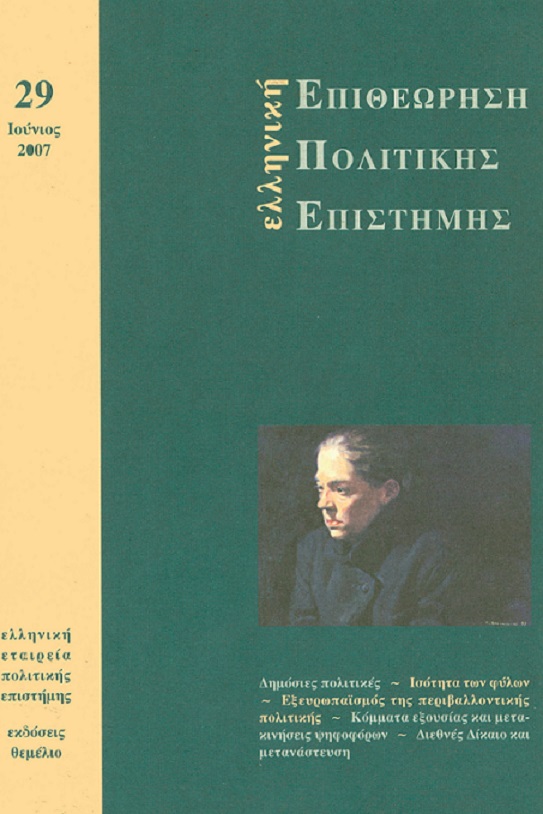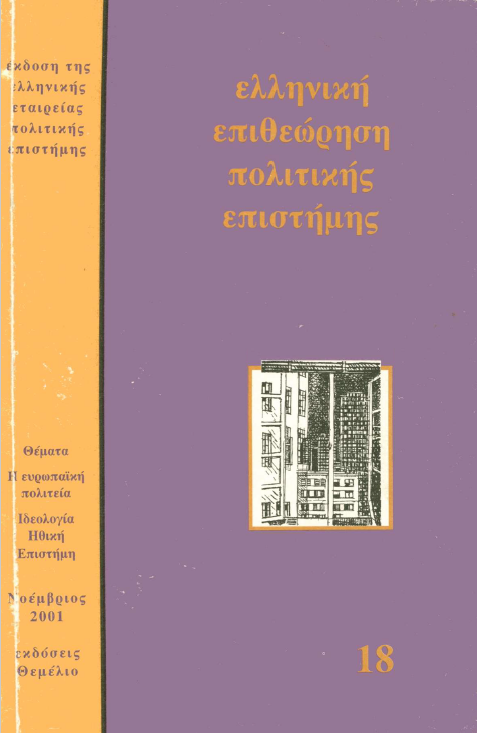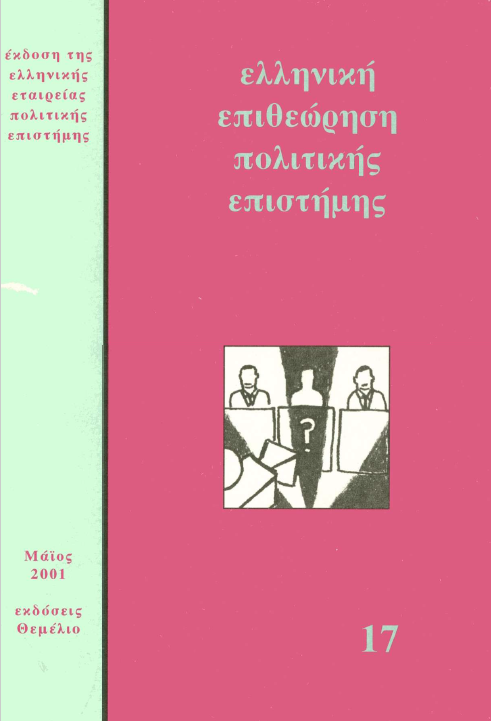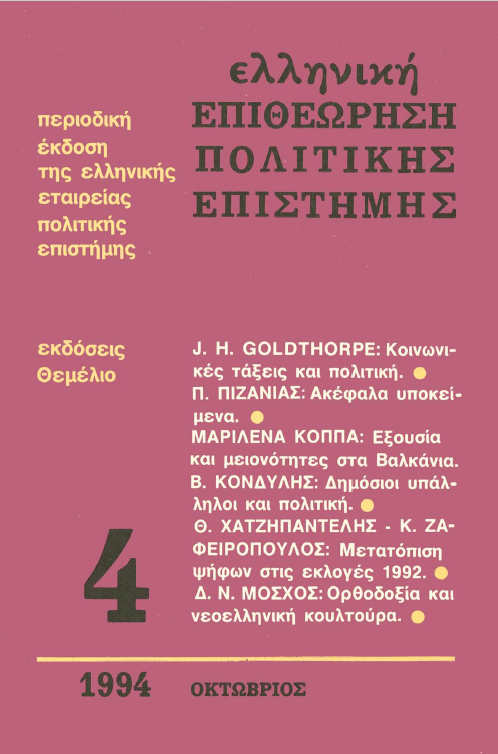Electoral changes 1985-1996
Abstract
In this paper we study the electoral changes of the Greek parliamentary elections of 1985, of lune and November 1989, the elections of 1990, 1993, and 1996. The study of uniformity of the vote an the study of the loyalties of the voters, are dominant subjects in this paper. Regarding the election outcomes and using ecological regression with constraints, we estimate the flows of the voters between consecutive elections. Using the flows of the voters we can examine the degree and even the spatial variability of the loyalties of the voters. Voters tend to vote for the same party in consecutive elections exhibiting in this way very high loyalties. None the less the proportion of voters who tend to vote for smaller parties have increased. Nationalization of the vote is detected by using the deviation of Pedersens Index, which is calculated for every electoral constituency. The results confirm that the tendency of the electoral constituencies to act in a homogeneous way has come to a stability.
Article Details
- How to Cite
-
Ζαφειρόπουλος Κ., & Χατζηπαντελής Θ. (2017). Electoral changes 1985-1996. Greek Political Science Review, 13, 5–29. https://doi.org/10.12681/hpsa.15136
- Issue
- Vol. 13 (1999)
- Section
- Articles

This work is licensed under a Creative Commons Attribution-NonCommercial-ShareAlike 4.0 International License.
Authors who publish with this journal agree to the following terms:
Authors retain copyright and grant the journal right of first publication with the work simultaneously licensed under a Creative Commons Attribution licence that allows others to share the work with an acknowledgement of the work's authorship and initial publication in this journal.
Authors are able to enter into separate, additional contractual arrangements for the non-exclusive distribution of the journal's published version of the work (e.g. post it to an institutional repository or publish it in a book), with an acknowledgement of its initial publication in this journal.
Authors are permitted and encouraged to post their work online (preferably in institutional repositories or on their website) prior to and during the submission process, as it can lead to productive exchanges, as well as earlier and greater citation of published work (See The Effect of Open Access).









